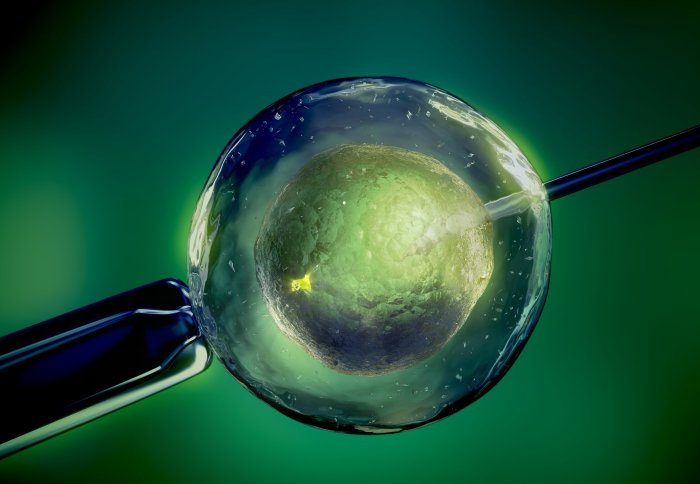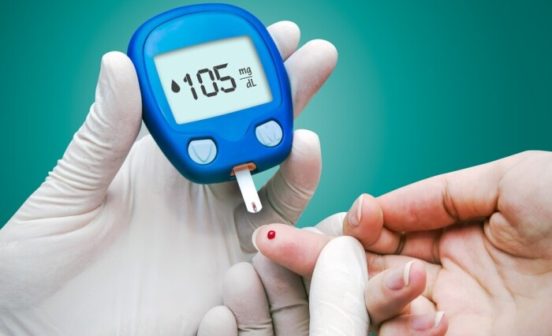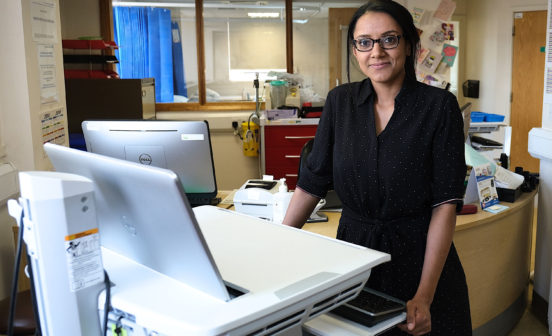First in HumanTherapeutic Using the novel hormone kisspeptin to improve IVF treatment
Infertility affects one in six couples in the UK. The inability to have children can be devastating, and has important implications for mental, social and reproductive health. By identifying the key factors which control the reproductive function we can improve therapies for infertility.

One such factor involves the natural hormone kisspeptin. Kisspeptin is a critical regulator of the reproductive function in animals and humans. Our research has investigated the effects of kisspeptin in human volunteers and patients, and is jointly funded by the NIHR Imperial BRC and the Medical Research Council. We have built on these pioneering first-in-human studies to investigate the use of kisspeptin in women with infertility undergoing IVF treatment.
IVF treatment can enable infertile couples to conceive but it can also result in ovarian hyperstimulation syndrome (OHSS), a potentially life-threatening condition. For the first time, we have successfully used kisspeptin to stimulate ovulation in women during IVF treatment. To date, 73 healthy babies have been born after their mothers were given an injection of kisspeptin to make their eggs mature, instead of fertility drugs such as human chorionic gonadotropin (HCG) which can cause OHSS. Our work will prevent the life-threatening side effects and improve care for women undergoing fertility treatment.





